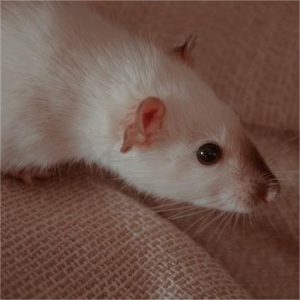Home > Products > Animal Primary Cells >
Rat Tracheal Epithelial Cells |
||||
|---|---|---|---|---|
| Product Name |
Rat Tracheal Epithelial Cells |
|||
| Price | Get Quote | |||
| Cat.No |
ABC-TC4233 |
Species |
Rat |
|
| Size/Quantity |
1 vial |
Biosafety Level |
1 |
|
| Shipping Info |
Dry Ice |
Storage |
Liquid Nitrogen |
|
| Description |
Why choose Rat Tracheal Epithelial Cells from AcceGen? Rat Primary Tracheal Epithelial Cells from AcceGen are well-characterized and demonstrate the presence of E-cadherin and ZO-1 through immunofluorescent staining using specific antibodies. Notably, these cells are confirmed to be free from contamination by bacteria, yeast, fungi, and mycoplasma, ensuring their suitability for reliable research and experimentation. |
|||
| Disease | Normal |
|||
| Source Organ | Tracheal |
|||
| Quality Control | All cells test negative for mycoplasma, bacteria, yeast, and fungi. |
|||
| Recommended Medium And Supplement | ABM-TM4233 Rat Tracheal Epithelial Cells Medium Kit |
|||
| Citation Guide |
When you publish your research, please cite our product as “AcceGen Biotech Cat.# XXX-0000”. In return, we’ll give you a $100 coupon. Simply click here and submit your paper’s PubMed ID (PMID). |
|||
| Application | FOR RESEARCH USE ONLY Rat tracheal epithelial cells (RTE) offer valuable applications in the study of tracheal cell biology. Their capacity to be manipulated into different phenotypes in culture settings is instrumental for research on the molecular control of tracheal cell proliferation, differentiation, and function. Moreover, RTE monolayer cultures have proven essential in investigating cellular transformations, especially regarding changes in growth factors and their receptors, shedding light on critical aspects of tracheal biology and paving the way for advancements in respiratory research. |
|||
| Growth Conditions | 37 ℃, 5% CO2 |
|||
| Cell Type | Epithelial |
|||
| Growth Mode | Adherent |
|||
| Product Type |
Rat Primary Cells |
|||
| Product Image |

|
|||
- ONLINE INQUIRY
- PRODUCT REVIEWS
Fill out a request in the form below and we’ll get back to you within 24 hours with a quote.






 Rat tracheal epithelial cells, derived from the tracheal tissue of laboratory Sprague-Dawley rats, exhibit versatile differentiation capabilities under specific in vitro conditions. These cells can develop into mucociliary, mucous, or squamous phenotypes, with the expression of a mucociliary phenotype being most faithful to the in vivo tracheal epithelium morphology. Achieving this mucociliary phenotype necessitates the presence of retinoic acid (RA), a collagen gel substratum, and an air-liquid interface at the cellular level. In contrast, omitting RA from the culture media leads to stratified squamous cells with a cornified apical layer. This squamous phenotype is marked by the loss of transglutaminase type II and keratin 18, accompanied by the expression of squamous markers transglutaminase type I and keratin 13.
Rat tracheal epithelial cells, derived from the tracheal tissue of laboratory Sprague-Dawley rats, exhibit versatile differentiation capabilities under specific in vitro conditions. These cells can develop into mucociliary, mucous, or squamous phenotypes, with the expression of a mucociliary phenotype being most faithful to the in vivo tracheal epithelium morphology. Achieving this mucociliary phenotype necessitates the presence of retinoic acid (RA), a collagen gel substratum, and an air-liquid interface at the cellular level. In contrast, omitting RA from the culture media leads to stratified squamous cells with a cornified apical layer. This squamous phenotype is marked by the loss of transglutaminase type II and keratin 18, accompanied by the expression of squamous markers transglutaminase type I and keratin 13.